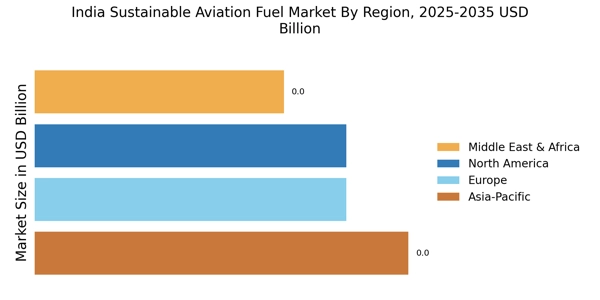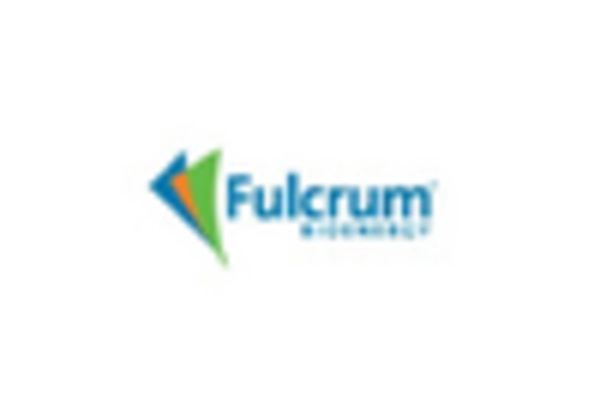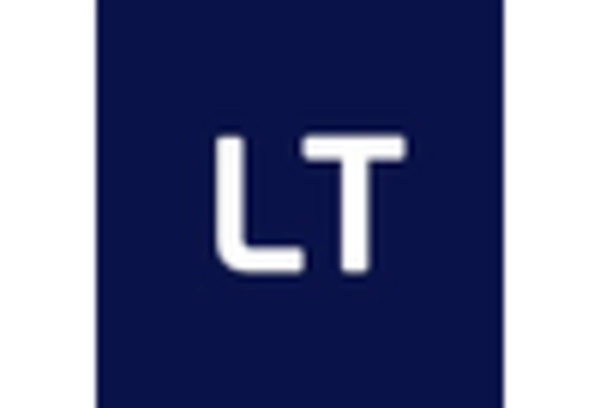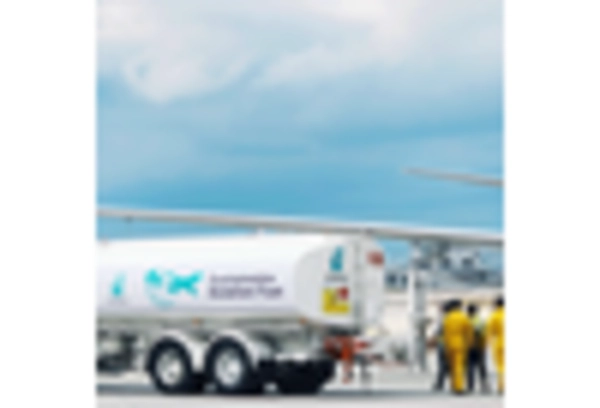Regulatory Support and Policy Framework
The India Sustainable Aviation Fuel Market is experiencing a robust push due to favorable regulatory frameworks. The Indian government has introduced various policies aimed at promoting the use of sustainable aviation fuels. These initiatives include tax incentives, subsidies, and mandates for blending sustainable fuels with conventional aviation fuels. As a result, the market is projected to grow significantly, with estimates suggesting a compound annual growth rate of over 20% in the coming years. This regulatory support not only encourages investment in sustainable fuel technologies but also aligns with India's commitment to reducing carbon emissions in the aviation sector. Furthermore, the government's focus on achieving net-zero emissions by 2070 further solidifies the importance of sustainable aviation fuels in the national energy strategy.
Technological Innovations in Fuel Production
Technological advancements play a crucial role in the India Sustainable Aviation Fuel Market. Innovations in fuel production processes, such as the development of advanced biofuels and synthetic fuels, are enhancing the efficiency and sustainability of aviation fuels. Companies are investing in research and development to create more efficient conversion technologies, which could potentially lower production costs and improve fuel performance. For instance, the use of waste feedstocks for fuel production is gaining traction, which not only reduces waste but also provides a sustainable source of energy. The market is likely to benefit from these technological innovations, as they can lead to a more competitive landscape and increased adoption of sustainable aviation fuels across the aviation sector.
Growing Environmental Awareness Among Consumers
Consumer awareness regarding environmental issues is significantly influencing the India Sustainable Aviation Fuel Market. As travelers become more conscious of their carbon footprints, there is a rising demand for airlines to adopt sustainable practices, including the use of sustainable aviation fuels. This shift in consumer behavior is prompting airlines to invest in sustainable fuel options to meet customer expectations and enhance their brand image. Reports indicate that a substantial percentage of travelers are willing to pay a premium for flights that utilize sustainable fuels, which could drive market growth. Airlines that prioritize sustainability may gain a competitive edge, thereby accelerating the transition towards a more sustainable aviation sector in India.
Investment Opportunities in Sustainable Aviation
The India Sustainable Aviation Fuel Market is witnessing a surge in investment opportunities as stakeholders recognize the potential of sustainable aviation fuels. Venture capitalists, private equity firms, and government bodies are increasingly channeling funds into research, development, and production of sustainable fuels. This influx of capital is expected to stimulate innovation and accelerate the commercialization of sustainable aviation technologies. Furthermore, partnerships between airlines and fuel producers are becoming more common, facilitating the development of supply chains for sustainable fuels. The market's growth trajectory appears promising, with projections indicating that investments in sustainable aviation fuels could reach several billion dollars over the next decade, thereby transforming the aviation landscape in India.
International Collaboration and Knowledge Sharing
International collaboration is emerging as a vital driver for the India Sustainable Aviation Fuel Market. Partnerships between Indian companies and international organizations are fostering knowledge sharing and technology transfer, which are essential for advancing sustainable aviation fuel initiatives. Collaborative efforts can lead to the development of best practices and innovative solutions tailored to the Indian context. Additionally, participation in global forums and initiatives focused on sustainable aviation fuels allows India to align its strategies with international standards and benchmarks. This collaborative approach not only enhances the credibility of India's sustainable aviation efforts but also positions the country as a key player in the global sustainable aviation fuel landscape.
.png)

















